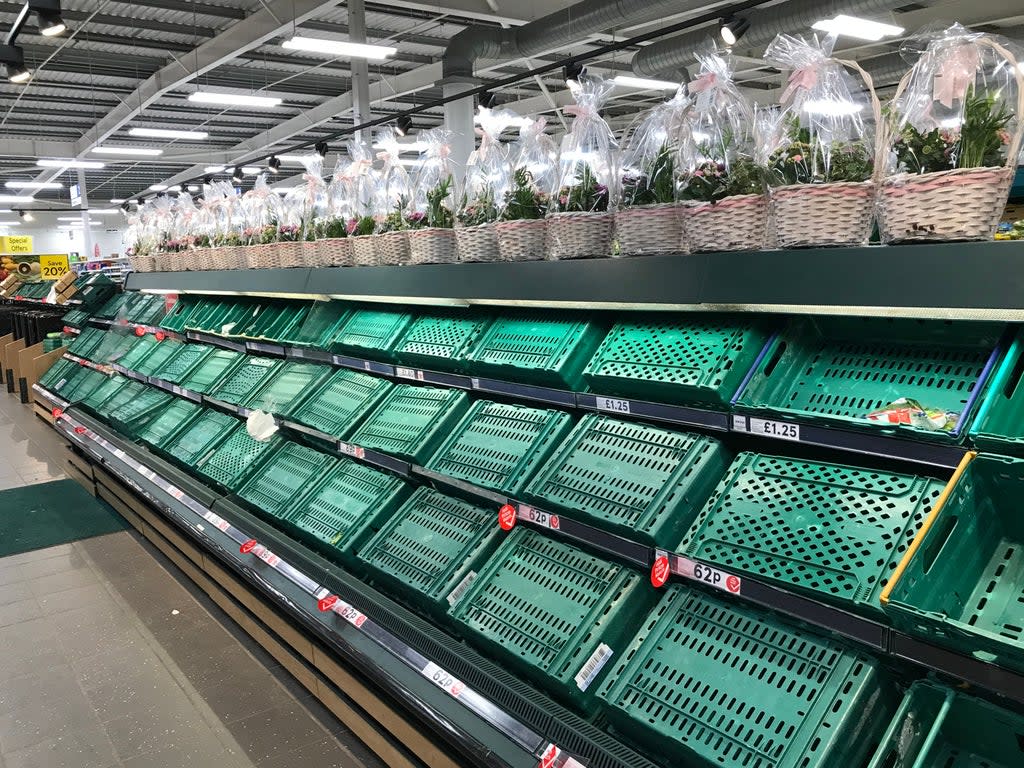Supply chain chaos and labour shortages will last until 2023, say finance bosses

Finance bosses believe a “double whammy” of labour shortages and supply disruptions currently causing major problems for British businesses will not ease in any meaningful way until early 2023, according to a survey.
Deloitte’s quarterly poll of chief financial officers – including 18 of the companies listed on the FTSE 100 – found that the majority of firms are being impacted.
The majority of CFOs experienced labour shortages over the past three months with three-quarters reporting some, severe or significant problems. Almost the same proportion (73 per cent) expect similar levels of difficulties in one year’s time.
Almost six in 10 CFOs (59 per cent) report that their businesses have experienced some, significant or severe supply chain disruption.
Supply disruption and labour shortages have left companies struggling to keep up with demand as the economy has recovered from the pandemic.
Around four in 10 CFOs (41 per cent) report that demand for their own businesses’ products and services have already returned to pre-pandemic levels.
However, others have pushed back their expectations for the recovery of demand in light of shortages of both materials and workers. Some 52 per cent of CFOs are now expecting demand to reach pre-pandemic levels in 2022 or later, up from 43 per cent in the second quarter.
“CFOs are tackling the double whammy of labour market shortages and supply chain disruption. But they remain confident with a strong appetite for growth and investment in new markets, products and services,” said Richard Houston, senior partner and CEO of Deloitte.
“Alongside the persisting impact of the pandemic, climate change remains firmly rooted as a key risk. As businesses set their sights on the transition to net zero, finance leaders are focusing on ways to ensure reducing carbon emissions is fully embedded into their corporate strategy.”
Official figures released last week showed that job vacancies had risen to their highest level in 20 years, with 1.1 million postings unfilled in August.
Shifts in consumer behaviour accelerated during the pandemic have created a mismatch between the skills that unemployed workers have and what is needed by businesses.
A move towards online shopping has created more demand for warehouse and logistics workers with companies competing for a limited pool of labour. Meanwhile, thousands of overseas workers left the UK in the wake of Brexit.
Read More
Christmas shoppers warned about post-Brexit charges on orders from EU

